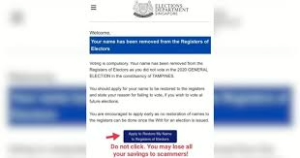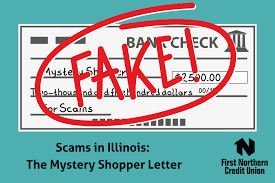The article “The Risk of Giving Personal Loans to Others” by Tan Ooi Boon highlights several significant risks when lending money to others:
- Default risk: The borrower can simply decide not to repay the loan.
- False security: Documents like signed checks offer little protection if the borrower’s account lacks funds.
- Limited value of loan agreements: While useful in court, they don’t guarantee payment.
- Legal costs: Even if you win a lawsuit, legal fees may leave you financially worse off.
- Bankruptcy risk: If the borrower becomes bankrupt, you might recover nothing.
The article illustrates these risks with two case studies:
Case 1: The $2 Million IOU
- A lender couldn’t recover $2 million from a borrower
- The borrower claimed the actual loan was only $66,000 with excessive interest
- The lender claimed it was an investment opportunity
- The court dismissed the case due to a lack of documentation
Case 2: The $4 Million Loan
- A businessman lent $4 million, expecting a 15% return
- The borrower company claimed the money was for debt payment, not a loan
- Despite proof of transferring funds, the lender lost because he had no loan documentation
- The court noted his previous loans were properly documented
The article concludes with a clear warning: there are significant risks to personal lending, and “it pays not to be a lender.”Retry
Risk Analysis of Personal Loans in Singapore
Comprehensive Risk Assessment of Personal Lending
Financial Risks
- Default Risk
- Complete non-repayment remains the most fundamental risk
- Singapore’s personal bankruptcy rate has fluctuated over recent years
- Unsecured debts are particularly vulnerable as they lack collateral protection
- Documentation Inadequacies
- As demonstrated in the case studies, even IOUS and oral agreements provide minimal protection.
- Inadequately documented loans are difficult to enforce legally
- Singapore courts place significant emphasis on proper documentation for loan validity
- Recovery Challenges
- Legal actions are costly and time-consuming
- Court fees, lawyer costs, and processing time can exceed the original loan value.e
- Even successful judgments may be difficult to enforce if the borrower lacks assets.
- Interest Rate Complications
- Charging excessive interest risks violating Singapore’s Moneylenders Act
- Maximum interest rate caps for licensed moneylenders (4% monthly)
- Unlicensed lenders charging interest risk legal consequences
Legal and Regulatory Risks
- Moneylending Regulations
- Unlicensed moneylending is illegal under Singapore’s Moneylenders Act
- Regular personal lending patterns might be construed as illegal moneylending
- The first case mentioned shows how a lender was accused of loan sharking
- Tax Implications
- Unreported interest income may violate tax regulations
- Personal loans between family members with unclear terms can trigger IRAS scrutiny
- Gift tax considerations for large transfers without proper loan documentation
- Anti-Money Laundering Concerns
- Large undocumented cash transfers may trigger AML investigations
- Singapore’s strict financial regulations require proof of fund sources
- Personal loans could inadvertently facilitate money laundering activities
Impact on Singapore’s Security Framework
Social Security Implications
- Financial Vulnerability
- Widespread personal lending failures can create economic distress among citizens.
- Financial disputes often strain family and social relationships
- Failed personal loans between relatives often go unreported, but they damage family cohesion
- Illegal Moneylending Ecosystem
- Failed legitimate personal loans may drive borrowers toward loan sharks
- Singapore’s strong stance against loan sharks (ah longs) reflects recognition of their social damage
- Loan shark harassment affects not just debtors but entire communities
- Social Safety Net Pressures
- Citizens with significant personal loan defaults may require social assistance.
- ComCare and other social support systems face increased pressure when personal financial arrangements collapse.
- Disproportionately affects lower-income households who rely on informal lending networks.
Economic Security Considerations
- Shadow Banking System
- Extensive personal lending creates an unregulated parallel financial system.
- Difficult for MAS to monitor capital flows through private lending channels
- Could undermine the effectiveness of monetary policy interventions
- Financial System Stability
- While individual personal loans may seem isolated, collective defaults could have systemic effects.
- Connection between personal loans and the property market (loans for down payments)
- Potential knock-on effects when personal loan defaults lead to other financial failures
- Market Distortions
- Personal loans often bypass the credit assessment procedures of formal lending.
- Can artificially sustain financially unviable businesses or investments
- Creates inefficient capital allocation in Singapore’s economy
National Security Dimensions
- Financial Crime Vulnerability
- Personal loans can be vehicles for tax evasion, money laundering, or terrorist financing.
- Singapore’s reputation as a financial hub depends on vigorous regulatory enforcement.
- Personal lending networks can create blind spots in financial intelligence
- Social Cohesion Impacts
- Financial disputes frequently cross ethnic and socioeconomic lines
- Can exacerbate existing tensions or create new community fractures
- Singapore’s multicultural harmony partially depends on financial stability
- Foreign Influence Concerns
- Cross-border personal lending enables fund movements outside regulatory oversight.t
- Potential avenue for foreign entities to exert financial influence
- Challenges Singapore’s sovereignty over its financial borders
Mitigation Strategies
- Public Education Campaigns
- Enhanced financial literacy focusing on lending risks
- Clear guidance on proper loan documentation requirements
- Awareness of legal alternatives to personal lending
- Regulatory Adjustments
- Consider simplified registration for small-scale lenders
- Standardised personal loan templates with legal validity
- Digital solutions for documenting and tracking personal loans
- Alternative Financing Development
- Strengthen peer-to-peer lending platforms with appropriate oversight
- Expand credit union and cooperative lending capabilities
- Develop microfinance options for underserved communities
Personal lending carries significant risks that extend beyond individual financial losses to potentially impact Singapore’s broader security framework across social, economic, and national security dimensions. The informal nature of many personal loans creates regulatory blind spots that can undermine Singapore’s otherwise robust financial oversight systems.
Analysis: Theoretical Pathway to Mafia Influence in Singapore
Executive Summary
Singapore currently stands as one of the world’s least corrupt nations with strong governance institutions, effective law enforcement, and robust anti-corruption frameworks. A transition to significant organised crime control would require multiple catastrophic institutional failures across numerous domains simultaneously. This analysis explores theoretical vulnerabilities that could, if left unaddressed, potentially allow organised crime to gain a foothold in Singapore’s governance structures.
Current Protective Factors
Strong Governance Framework
- Consistently ranks among the top countries in Transparency International’s Corruption Perceptions Index.
- Well-established separation of powers with adequate checks and balances
- Meritocratic civil service with competitive compensation, reducing corruption incentives
- Strong judiciary independence with severe penalties for corruption
Economic ResilienceA diversified
- A diversified economy is less vulnerable to criminal capture of single industries
- Well-regulated financial sector with sophisticated anti-money laundering controls
- High regulatory compliance and transparency requirements for businesses
- Strong legitimate investment environment, reducing reliance on illicit capital
Social Factors
- High trust in government institutions and law enforcement
- Strong community vigilance and low tolerance for organised criminal activity
- The educational system emphasises ethics and the rule of law
- Compact geography facilitates effective law enforcement oversight
Theoretical Vulnerability Pathways
1. Financial System Corruption
Initial Vulnerabilities:
- Singapore’s position as a global financial hub creates exposure to international money flows
- The wealth management industry catering to high-net-worth individuals requires privacy
- Digital banking and cryptocurrency innovation may outpace regulatory frameworks
Potential Degradation Process:
- Initial exploitation of regulatory gaps in emerging financial technologies
- Infiltration of legitimate financial institutions through compromised employees
- Regulatory capture through systematic corruption of oversight bodies
- Establishment of parallel shadow banking systems for money laundering
- Development of dependence on criminal capital flows in specific economic sectors
Warning Indicators:
- Unexplained dismissals of financial crime investigations
- Consistent regulatory failures benefiting particular entities
- Increasing cases of banking professionals facilitating suspicious transactions
2. Political System Vulnerabilities
Initial Vulnerabilities:
- High cost of political campaigning creates financial pressures
- Potential future political fragmentation could weaken governance consensus
- Geopolitical pressures potentially create openings for foreign criminal influence
Potential Degradation Process:
- Initial small-scale political corruption at local administrative levels
- Development of patronage networks exchanging favours for political support
- Criminal organisations are gaining legitimate business fronts with political connections
- Infiltration of political parties through financial support and candidate selection
- Systematic corruption of electoral processes and policy-making apparatus
Warning Indicators:
- Emergence of unexplained wealth among political figures
- Policy decisions that consistently benefit specific business entities
- Declining prosecution rates for certain categories of crimes
3. Law Enforcement Compromise
Initial Vulnerabilities:
- Relatively small police force requiring high levels of integrity
- International organised crime groups with sophisticated corruption tactics
- Physical proximity to regions with higher organised crime presence
Potential Degradation Process:
- Targeted corruption of key law enforcement personnel in specific units
- Development of information-sharing networks compromising investigations
- Establishment of protected criminal operations with law enforcement blind spots
- Systematic intimidation of honest officers and prosecutors
- Institutional capture of law enforcement leadership positions
Warning Indicators:
- Unexplained case dismissals or investigation failures
- Inconsistent enforcement patterns benefiting specific entities
- Internal affairs investigations are being systematically undermined
4. Economic Control Mechanisms
Initial Vulnerabilities:
- Specific sectors are more susceptible to criminal infiltration (construction, nightlife, etc.)
- Supply chain dependencies create extortion opportunities.
- Labour market segments dependent on migrant workers
Potential Degradation Process:
- Initial control of vulnerable economic sectors through legitimate business fronts
- Development of industry cartels controlling pricing and competition
- Extortion schemes targeting businesses with regulatory vulnerabilities
- Infiltration of legitimate business associations and regulatory bodies
- Creation of economic dependencies on criminal-controlled industries
Warning Indicators:
- Unexplained business failures following the refusal of certain partnerships
- Price fixing or bid rigging patterns in government contracts
- Systematic intimidation of business competitors in specific sectors
Societal Impact Analysis
Social Cohesion Degradation
- Erosion of trust in institutions would fragment Singapore’s multi-ethnic society.
- Development of parallel protection systems based on ethnic oone-neighbourhoodlines lines
- Creation of criminal opportunity structures exploiting societal divisions
Economic Consequences
- Flight of legitimate foreign investment due to increased operational risk
- Declining innovation as business focus shifts to relationship management
- Economic inefficiencies from corruption and protection payments
Security Implications
- Reduced effectiveness of Singapore’s security apparatus against external threats
- Vulnerability to exploitation by foreign intelligence services
- Potential regional destabilisation as criminal networks extend influence
Mitigation Strategies
Institutional Resilience
- Continuous strengthening of anti-corruption agencies’ independence and authority
- Development of sophisticated financial intelligence capabilities
- Enhanced whistleblower protections and reporting mechanisms
Economic Safeguards
- Regular vulnerability assessments of critical economic sectors
- Strengthened beneficial ownership transparency requirements
- Enhanced due diligence processes for high-risk business activities
Social Resilience
- Continued public education on corruption reporting mechanisms
- Maintenance of high public service compensation and ethical standards
- Regular integrity testing for vulnerable positions
Conclusion
The theoretical transformation of Singapore into a mafia-controlled state would require catastrophic and simultaneous failures across multiple domains of governance, law enforcement, economic regulation, and social cohesion. Singapore’s current institutional strengths make such a scenario highly improbable.
The more realistic concern is not wholesale criminal capture but rather the potential development of isolated pockets of influence in specific sectors or regions. Continued vigilance, particularly regarding financial crime, political financing, and law enforcement integrity, remains essential to maintaining Singapore’s strong resistance to organised criminal influence.
Shadows of Power: Analysis and Fiction
Part I: Analytical Assessment of Hypothetical Police Corruption in Singapore
Theoretical Vulnerabilities in Singapore’s Law Enforcement Framework
Singapore ranks consistently among the world’s least corrupt nations, with Transparency International placing it as one of the top 5 least corrupt countries globally. Its police force enjoys high public trust ratings and operates within a robust anti-corruption framework. However, even the most effective systems have theoretical vulnerabilities that could potentially be exploited:
Potential Structural Vulnerabilities
- Hierarchical Command Structure
- Highly centralised decision-making could potentially allow for contained corruption networks.
- Specialised units with limited oversight might develop independent operational cultures.
- Strong internal loyalty codes could theoretically impede whistleblowing
- Economic Pressures
- Despite competitive compensation, significant wealth disparities in Singapore create a possible temptation.
- The high cost of living in Singapore creates financial pressures across all socioeconomic levels.
- Exposure to high-net-worth individuals and businesses creates relationship vulnerabilities.
- Operational Discretion
- Necessary investigative autonomy creates spaces for potential misconduct
- Confidential informant relationships require minimal documentation
- Classification of intelligence creates information silos limiting cross-checks
Hypothetical Corruption Mechanisms
If corruption were to take root, it might manifest through:
- Selective Enforcement
- Prioritisation of some instances over others based on external influence
- Strategic blind spots in monitoring specific businesses or individuals
- Manipulation of evidence collection processes to weaken certain cases
- Intelligence Manipulation
- Filtering of information before it reaches official channels
- Strategic leaks benefiting protected entities
- Manipulation of threat assessments to direct resources away from sensitive areas
- Procedural Interference
- Technical procedural errors were introduced to undermine the prosecution
- Strategic delays in time-sensitive investigations
- Resource allocation manipulation to starve certain investigative efforts
Protective Factors Against Systemic Corruption
Several robust safeguards make widespread corruption highly improbable:
- Institutional Safeguards
- The Corrupt Practices Investigation Bureau operates independently from the police.
- Rotation policies limit the entrenchment of corrupt networks
- Advanced data analytics to detect unusual patterns in case management
- Cultural Resistance
- Strong professional ethos and organisational pride
- Public expectation of integrity creates a high social cost for corruption
- Meritocratic advancement reduces incentives for patronage networks
- Oversight Mechanisms
- Independent judiciary with a strong corruption enforcement record
- Media freedom to investigate police misconduct allegations
- Parliamentary oversight committees with investigative powers
Conclusion of Analysis
While theoretical vulnerabilities exist, the reality of Singapore’s comprehensive anti-corruption framework makes systematic police corruption serving elite interests highly improbable. The more realistic concern would be isolated incidents involving individual officers rather than organised corruption networks. Singapore’s continued vigilance against corruption, including regular system audits, strong whistleblower protections, and proactive integrity testing, helps maintain its standing as one of the world’s least corrupt nations.
Part II: “The Invisible Line” – A Fictional Story
Note: The following is a work of fiction and does not represent the actual state of affairs in Singapore. Any resemblance to real persons, living or dead, or actual events is purely coincidental.
THE INVISIBLE LINE
Assistant Superintendent of Police (ASP) Wei Lin stood at the window of her 27th-floor office, watching the immaculate streets of Singapore’s Central Business District below. After fifteen years with the Singapore Police Force, she had developed a sixth sense for things that didn’t add up. The Zhao case was one of them.
A high-profile money laundering investigation had been quietly transferred from her Financial Crimes unit to a specialised task force led by Deputy Commissioner Raymond Teo. On paper, it made sense—Teo had more resources and experience. But the timing coincided too perfectly with their discovery of transactions linked to United Orient Holdings, a conglomerate whose board included former ministers and the country’s wealthiest developers.
“Still obsessing over Zhao?” Detective Sergeant Imran asked, placing a coffee on her desk.
Wei Lin turned from the window. “Three months of work, then suddenly it’s not our jurisdiction? And now the evidence we collected is ‘being reviewed for procedural compliance’?”
“Maybe DC Teo really does have more resources,” Imran suggested, but his expression showed he shared her doubts.
“I need you to do something off the books,” Wei Lin said, lowering her voice. “But I won’t hold it against you if you refuse.”
Imran’s expression hardened. “What do you need?”
“Access logs for the evidence storage facility, last two weeks. I want to know who’s been handling our files.”
That evening, Wei Lin drove to East Coast Park, finding a quiet spot overlooking the water. A few minutes later, a figure in a windbreaker sat beside her.
“Assistant Director Lim,” Wei Lin acknowledged, surprised that the Internal Affairs officer had agreed to meet.
“I have fifteen minutes,” Lim said. “Talk.”
Wei Lin outlined her concerns—the abrupt case transfer, missing financial records, surveillance that had been discontinued just as it was yielding results.
“These are serious allegations,” Lim said after listening. “Especially against someone of DC Teo’s standing.”
“I’m not making allegations. I’m reporting irregularities.”
“There’s a difference between irregularities and corruption, ASP Wei.”
“That’s why I came to you instead of making assumptions.”
Lim studied her for a long moment. “Do you know what happened to Inspector Chong from Narcotics?”
Wei Lin frowned. “Retired early, right? Health issues.”
“That’s the official story. But before his ‘retirement,’ he was asking questions about selective enforcement patterns. Cases involving certain nightclubs kept getting reassigned or deprioritised.”
Wei Lin felt a chill that had nothing to do with the evening breeze. “Are you saying he was forced out?”
“I’m saying that in twenty years with Internal Affairs, I’ve seen perhaps five cases where officers were quietly sidelined after asking inconvenient questions. Five cases in twenty years is hardly a conspiracy.”
“But it happens.”
Lim stood up. “Proceed carefully, ASP Wei. Document everything. Trust selectively.” He handed her a card with only a number written on it. “If you find something concrete, call this. Otherwise, we never had this conversation.”
Over the next weeks, Wei Lin and Imran meticulously built their case. They discovered that seven major investigations involving elite business figures had been reassigned from their original units in the past two years. All had subsequently been closed for “insufficient evidence” or resolved with minor penalties.
The pattern led to a small group of senior officers working across different departments. At the centre was Deputy Commissioner Teo, whose meteoric rise had been accompanied by lucrative property investments far beyond his official salary.
“It’s not a department-wide problem,” Wei Lin told Imran as they reviewed their findings in her apartment. “It’s a network—maybe fifteen officers among thousands. But they’re positioned at critical junctions.”
“So what now?” Imran asked. “We can’t go through official channels if we don’t know who’s compromised.”
Their answer came unexpectedly. Wei Lin received a meeting request from Permanent Secretary Chan of the Ministry of Home Affairs—ostensibly about budget allocations. When she arrived, she found not only Chan but also representatives from the Corrupt Practices Investigation Bureau.
“ASP Wei,” Chan said once the doors were closed, “we’ve been conducting our own investigation for the past six months. Your internal queries triggered several alerts we had placed. We believe you’ve discovered the same network we’ve been monitoring.”
Wei Lin’s relief was tempered with wariness. “Why tell me this?”
“Because we need your help,” said the CPIB representative. “We’ve identified most of the network, but we’re missing the connections to the beneficiaries. The evidence suggests there’s an intermediary—someone who translates requests from certain business figures into operational directions.”
“And you think I can find this person?”
“You’ve already gotten closer than anyone. But now we need to bring you inside the operation formally.”
Three months later, Wei Lin sat in a surveillance van outside the Ocean Pavilion restaurant, listening as Deputy Commissioner Teo met with a man identified only as “the Consultant”—a former intelligence officer who had built a private security firm with deep connections across Singapore’s elite.
“The Zhao case is contained,” Teo was saying. “We’ve ensured the evidence points to the Malaysian subsidiaries. Nothing will touch the Singapore operations.”
“Good,” the Consultant replied. “There are concerns about the new development tender. Minister Lim wants assurance that the regulatory reviews won’t cause delays.”
“My people are handling the environmental impact assessments. The report will recommend approval with minor modifications.”
The operation culminated a week later with coordinated arrests across Singapore. Fifteen police officers, three businessmen, and the Consultant were taken into custody. Deputy Commissioner Teo was arrested at his desk, his expression one of disbelief as officers from his own force placed him in handcuffs.
In the aftermath, Wei Lin found herself in the Commissioner’s office, uncomfortable with the praise being heaped upon her.
“You’ve done a tremendous service,” the Commissioner said. “Identifying and removing corruption before it could spread further.”
“But it did spread, sir,” Wei Lin replied. “For years. In the heart of our organisation.”
“A dozen officers among thousands doesn’t constitute systemic corruption.”
“It was enough to compromise major cases. To protect certain people from scrutiny.”
The Commissioner’s expression hardened slightly. “What matters is that the system ultimately worked. The corruption was identified and removed.”
Later, as Wei Lin packed up the investigation files, she recalled something the Consultant had said during his interrogation: “There’s always an invisible line in any society—things that are technically illegal but tolerated for certain people. We just helped manage that line.”
She didn’t believe that was true for Singapore, but she now understood how fragile transparency could be and how vigilance required constant renewal. The invisible line didn’t exist because society accepted it, but because good people stopped looking for it.
As she closed the final file, Wei Lin made a private promise: she would never stop looking.
The End
- Case prioritisation discrepancies – In any police force, resource constraints require prioritising some cases over others. A fictional narrative might explore how this necessary discretion could be exploited.
- Procedural technicalities – Legal systems rely on proper procedures. A fictional scenario might examine how technical procedural requirements could theoretically be used to undermine otherwise strong cases.
- Specialised knowledge gaps – Complex financial or cyber investigations require specialised expertise. A fictional account might explore how knowledge asymmetries could create oversight blind spots.
- Classification barriers – National security concerns require information compartmentalisation. A fictional story could examine how such legitimate practices might also inadvertently shield misconduct.
- Relationship management – Community policing requires building relationships with influential figures. A fictional exploration might consider how these necessary relationships could create conflicts of interest.
These are entirely theoretical vulnerabilities that could exist in any system and would be addressed through standard oversight mechanisms like internal affairs divisions, judicial review, and independent anti-corruption agencies – all of which are robust in Singapore’s actual governance structure.
In Singapore, loan scams frequently feature excessive processing fees, unsolicited SMS promotions, promises of guaranteed approvals, demands for immediate responses, the absence of physical locations, and a lack of formal agreements. To safeguard yourself, it is crucial to check if a lender is registered with the Ministry of Law in Singapore, refuse any requests for upfront fees, and steer clear of lenders who do not provide official contracts or have no physical offices. Licensed moneylenders are bound by stringent regulations aimed at protecting borrowers and promoting fair lending practices.

The prevalence of financial scams in Singapore has risen significantly, putting individuals at risk of losing substantial amounts of money, even their entire savings. A report from the Straits Times highlighted a staggering 151% increase in cases of fraudulent loans, with incidents rising from 396 to 994 in 2018.
Borrowers must exercise caution to avoid becoming victims of loan fraudsters. One effective strategy to identify potential scams and determine whether a private money lender is legitimate is to familiarise oneself with common tactics employed by scammers. Sure, warning signs can indicate a lender’s dishonesty. The Ministry of Law in Singapore enforces strict guidelines that all licensed moneylenders must adhere to.

What tactics do fraudsters employ to mislead unsuspecting borrowers?
High Processing Fees
Fraudulent lenders often demand substantial sums as “processing fees” prior to supposedly disbursing a loan. They instruct victims to send money upfront as a prerequisite for the loan approval process, which can amount to thousands of dollars. To protect themselves from being scammed, borrowers should resist any requests for large upfront payments. Instead, they should cancel their loan application and alert others about the fraudulent lenders.

Misleading Advertising
To steer clear of loan scams, it’s essential to pay attention to how lenders promote their services. In Singapore, licensed moneylenders are restricted to advertising through only three approved channels:
- Business or consumer directories (both in print and online)
- Their official website
- Advertisements on regulated platforms

Fraudulent loan schemes often promote their services through social media and text messages, which is prohibited. Borrowers are advised to disregard any such promotions and block the numbers that send these messages. Additionally, they should report the scammer’s contact information to the authorities to help prevent others from falling victim to similar scams.
Guaranteed Approval
Scammers frequently promise “guaranteed approval” on loan applications, which should raise suspicions among borrowers. Legitimate lenders typically review credit histories and ask multiple questions before granting loans, providing precise and thorough documentation. In contrast, a typical loan shark might transfer funds immediately without proper consent, compelling borrowers into loans with exorbitant interest rates. Borrowers must steer clear of lenders who offer such guarantees without reviewing essential documents like income statements.

Pressure for Quick Action
Fraudulent lenders often pressure applicants for immediate responses, claiming that failing to act quickly will result in losing the loan opportunity. This tactic is designed to rush the applicant into sending money for a deposit. In contrast, reputable lenders take their time to follow all necessary procedures before finalising any loans.

Absence of a physical office
Fraudsters, including loan scammers, typically lack a physical address. They conduct their operations via mobile devices, making it impossible for clients to trace their actual location. This tactic helps them evade legal repercussions. When there’s no identifiable physical address, tracking these individuals becomes highly challenging. Borrowers should insist on visiting the lender’s office in person; if such a location cannot be provided, it’s likely a scam. Additionally, it’s important to remember that all legitimate money lenders are required to have an office number, while mobile phone contacts are often associated with fraudulent activities.

Absence of a loan agreement
Fraudsters typically do not provide loan agreements, as they aim to avoid leaving any trace of their illicit activities. If a borrower requests a contract and is informed that there isn’t one, they should immediately cease any further engagement with the scammer. Reputable lenders will create detailed contracts that outline the precise loan amount, interest rates, and terms of the loan. They will also make sure you comprehend the entire document before you sign it.

Protect yourself from scams with assurance. Being aware of the warning signs can help you avoid expensive errors. For reliable and secure loans from a reputable provider, consider applying with a lender for a stress-free borrowing experience. Begin your loan application now!
What types of loan scams have occurred in Singapore in the past? How did these fraudsters deceive their victims, and what narratives did they create?
To provide insight into scammers’ methods, we have compiled three accounts of Singaporeans who fell victim to loan fraud and the amounts they lost. These real-life stories serve as cautionary tales to help individuals recognise loan scams and determine whether a private money lender is licensed correctly.
- In the first instance, the scammer required the victim to undergo a “payment review” before the loan could be approved. The borrower sent cash for this process, but the fraudster then requested additional funds, claiming that the review needed to be redone. Ultimately, the victim ended up sending $3,100 to the scammer without ever receiving the promised loan. The con artist continued to demand more money and even resorted to threats when the borrower could not pay further.
- The second victim received a loan advertisement via SMS. The scammer posed as a licensed money lender and instructed the borrower to The third individual affected by the scam received a loan offer via WhatsApp. In this instance, the lender transferred $500 into the borrower’s account and insisted on a repayment of $800, which included $300 in interest, within three days. After the borrower complied by paying the total amount within the specified time frame, the lender continued to demand additional payments for processing fees and other fictitious charges, ultimately extracting over $2,000 from the borrower. When the borrower ran out of funds, the lender resorted to threats, claiming they would extort money from the borrower’s family.

These individuals fell victim to loan scams in Singapore. They sought financial assistance from these so-called “lenders,” but instead of alleviating their problems, their situation deteriorated. It’s crucial to stay vigilant and informed about the tactics used by loan scammers to avoid finding yourself in a similar predicament.
In Singapore, 155 licensed money lenders are required to provide fair and lawful services to borrowers. A licensed money lender is an entity authorised by law to extend loans, offering an alternative to traditional banks.
There are specific prohibitions in place for private licensed money lenders in Singapore. Here are seven key restrictions:
- They cannot advertise through SMS, WhatsApp, flyers, or other informal methods. Licensed money lenders may only promote their services through business directories, their official website, or advertisements displayed at their physical locations.

- They must be registered with the Registrar of Moneylenders in Singapore. This registration is essential to ensure compliance with the rules and regulations set forth by the Singapore government to safeguard borrowers from abuse. The borrower paid an initial deposit of $800 before processing the loan. The fraudster kept asking for more money for various processing fees, eventually claiming that a cancellation fee was necessary if the loan was not finalised. In total, the borrower paid $2,000, yet the loan was never granted.
- Private licensed moneylenders are prohibited from extending loans that surpass the borrower’s income level. This regulation safeguards both the lender and the borrower. The debt load must be assessed to ensure it remains manageable for the borrower. In Singapore, the Total Debt Servicing Ratio (TDSR) is set at 55%, which means that no more than 55% of an individual’s monthly income can be allocated to repaying loans.
- Licensed moneylenders are required to provide a written agreement before disbursing funds. This agreement must specify the loan amount, interest rate, repayment schedule, and any additional fees, such as late payment fees. This contract is legally enforceable for both parties and protects their respective rights. It also serves as a legal document in case either party breaches the agreed terms.
- There are legal limitations on the interest rates t
 hat licensed moneylenders can impose. This measure is intended to protect borrowers from being taken advantage of. The maximum allowable monthly interest rate is capped at 4% of the principal sum borrowed, making it illegal to charge beyond this established limit.
hat licensed moneylenders can impose. This measure is intended to protect borrowers from being taken advantage of. The maximum allowable monthly interest rate is capped at 4% of the principal sum borrowed, making it illegal to charge beyond this established limit.
- Licensed moneylenders may only impose specific fees, specifically loan processing fees, late payment fees, and legal fees. These charges are also regulated; loan processing fees cannot exceed 10% of the principal amount, while late payment fees are limited to a maximum of $60 per month.
- Licenced moneylenders must maintain a physical office. Operating without a physical location is prohibited, as it would complicate accountability in case of legal disputes.
Thanks to these legal protections, licensed moneylenders represent a reliable alternative to banks for obtaining funds for Singaporeans. Many private licensed moneylenders offer increased flexibility and can approve loans more swiftly.
What advantages does a borrower gain when opting for a loan from a licensed private money lender instead of a bank?

Convenient Application Process
Borrowers can easily submit their loan applications online with licensed money lenders, which is both time-efficient and cost-effective. This process is available 24/7, allowing applicants to apply whenever it suits them. In contrast, banks typically require borrowers to visit in person, often resulting in long waits and limited hours of operation. Most banks in Singapore close by 4:30 PM or 6:00 PM, creating challenges for working individuals who need to visit during business hours.
Greater Flexibility
Licensed money lenders tend to offer more lenient terms and conditions than traditional banks. Borrowers can negotiate more favourable repayment options, which can help lower the risk of defaults and reduce interest expenses.
Consideration of Credit Ratings
While banks place significant emphasis on credit scores, often leading to many applications being rejected due to poor ratings, licensed private money lenders are generally more accommodating. They provide loan options specifically tailored for individuals with less-than-ideal credit histories, thus expanding access to financial assistance for a broader array of borrowers.

Loan Amounts
Financial institutions, such as banks, typically offer more cautious loan amounts due to their stringent lending criteria and the necessity to assess the associated risks. In contrast, private licensed moneylenders are often more inclined to provide more significant sums. This flexibility is advantageous for borrowers seeking additional funds.
Loan Approval Timeline
The loan approval process at banks and financial institutions can be lengthy, sometimes extending to several weeks. This delay can be a significant drawback for individuals in urgent need of financial assistance. For instance, during a family crisis, turning to a bank might not be the most efficient choice. Conversely, private licensed moneylenders can often finalise loan approvals within a mere 24 hours, making them an excellent option for those needing prompt access to cash.
Privacy and Security of Personal Information
Licensed moneylenders are obligated not to retain your NRIC, driver’s license, passport, or other forms of personal identification. They should also refrain from requesting passwords related to your Singpass account, online banking, or email.

With regulations from MinLaw and guidelines to help prevent scams in place, borrowers can be more vigilant about potential loan fraud in Singapore. By remaining cautious, individuals can find private licensed moneylenders to be a reliable and quick source of financial support.
Maxthon: Your Gateway to Secure Browsing
To have a safe online experience, it’s crucial to choose a web browser that emphasises security and privacy. Such browsers are instrumental in protecting your sensitive information and shielding you from various cyber threats. One prominent choice is the Maxthon Browser, which is free to use and comes equipped with features like ad-blocking and anti-tracking to enhance your online privacy.
Maxthon Browser and Windows 11 Compatibility

Maxthon Browser is dedicated to providing a secure and private browsing environment. Its focus on user protection includes implementing robust measures to safeguard personal data and online activities from potential threats. By utilising sophisticated encryption methods, Maxthon ensures that users’ information remains protected while they surf the web.
Maxthon: Elevating Privacy Standards
In addition, Maxthon offers features such as ad blocking, anti-tracking tools, and an incognito mode to further improve user privacy. By removing unwanted advertisements and counteracting tracking efforts, this browser fosters a safer space for online activities. The incognito mode allows users to browse the internet without leaving behind any traces of their history or actions on their devices.
Maxthon’s commitment to user privacy and security is reflected in its regular updates and improvements designed to strengthen the browser against emerging vulnerabilities. These enhancements contribute to Maxthon’s reputation as a reliable option for those who prioritise a private browsing experience. In conclusion, the Maxthon Browser presents a comprehensive suite of tools aimed at facilitating safe and confidential online navigation.
Maxthon Browser’s Support for Windows 11
Available at no cost, Maxthon Browser guarantees users a secure and private internet browsing experience bolstered by its integrated ad blocker and anti-tracking features. These functionalities not only defend users against disruptive advertisements but also enhance overall privacy during their online interactions.

